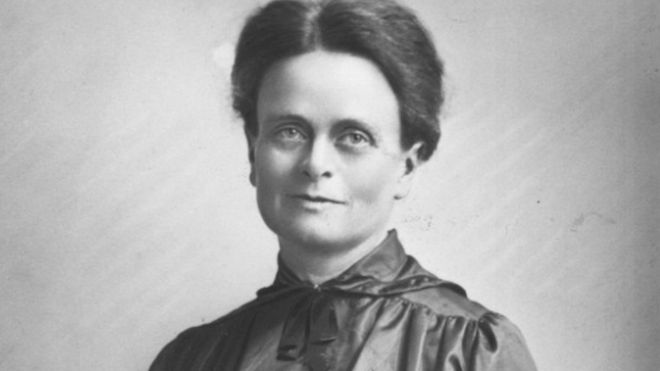Commemorations to take place in Scotland celebrating achievements of Dr Elsie Inglis
This month Elsie Inglis (16 August 1864 – 26 November 1917) will be honoured for her achievements during World War One at events planned by the Scottish Commemorations Panel. Elsie Inglis was an innovative Scottish doctor, suffragist, and founder of the Scottish Women's Hospitals. The centenary of the death and funeral of Dr Elsie Inglis will be marked on 26 and 29 November respectively in Edinburgh. There will be an Act of Remembrance at Dean Cemetery on 26 November and a Service of Thanksgiving at St Giles Cathedral on 29 November, where there is a plaque to commemorate her work.
In 1887 she began studying medicine at the Edinburgh School of Medicine for Women and completed her training at the Glasgow Royal Infirmary. She had signed the Declaration in Favour of Women's Suffrage in 1889. In addition to her medical work, from 1900 she was an active campaigner for suffrage in Scotland. Elsie Inglis, who was already honorary secretary of the Edinburgh National Suffrage Society from 1909, became secretary of the newly-formed Federation of Scottish Suffrage Societies (NUWSS). She was very dissatisfied with the general level of medical care and lack of specialisation in the needs of female patients and established facilities for poor women. Dr Inglis was known for her philanthropy and to have often declined to collect the fees owed to her, paying for her patients recuperation.
On the outbreak of the First World War, Dr Inglis suggested that women's medical units should be allowed to serve on the Western Front. However, the War Office response was: 'my good lady go home and sit still'. However, she took the idea to the Scottish Federation of Women's Suffrage Societies, which agreed to form a hospitals committee. The Common Cause, the journal of the National Union of Suffrage Societies, also published a plea for funds and she was able to establish the Scottish Women's Hospitals for Foreign Service (SWH).
Although rejected by the British The War Office, both France and Serbia accepted her suggestions. The first unit left for France in November 1914 and a second unit went to Serbia in January 1915. Dr Inglis arranged fourteen medical units to serve in France, Serbia, Corsica, Salonika, Romania, Russia and Malta. Through women's suffrage organisations, the equivalent of £53m was raised to support the work. Elsie Inglis was captured during an Austrian offensive in the summer of 1915. Eventually, with the help of American diplomats, authorities were able to negotiate the release of Dr Inglis and her medical staff. Upon reaching home she began organising funds for a Scottish Women's Hospital team in Russia. She led the team in Odessa, Russia in 1916 but was forced to return to Britain a year later, suffering from cancer.
Elsie Inglis died on 26 November 1917 and her funeral service was held at St Giles Cathedral in Edinburgh on 29 November. Outside of Scotland she is also particularly remembered in Serbia where she worked with medical teams to improve hygiene, which reduced typhus and other epidemics that had been raging there. Her efforts resulted in the Serbian award of the Order of Saint Sava (III class). In April 1916, Elsie Inglis became the first woman to be awarded the Order of the White Eagle (V class) by the Crown Prince Alexander of Serbia. A memorial fountain was erected in her memory in Mladenovac, Serbia, commemorating her work for that country.






